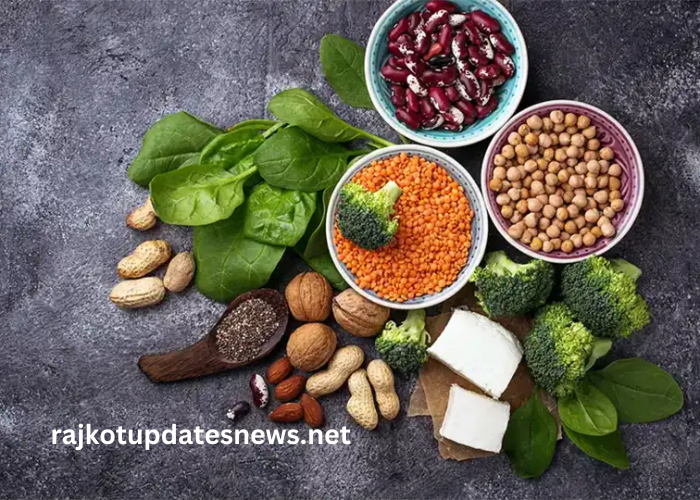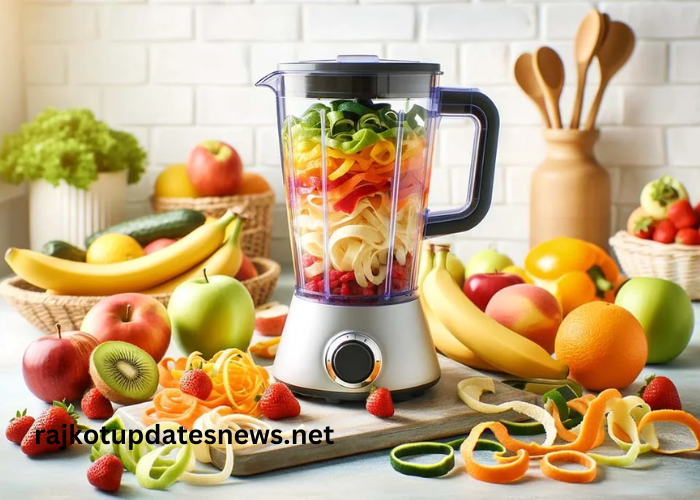In recent years, vegetarianism has gained significant popularity due to its various health benefits, ethical considerations, and environmental impact. One of the key challenges for vegetarians is ensuring they get enough protein, which is essential for maintaining muscle mass, repairing tissues, and supporting overall bodily functions. This article, inspired by Wellhealthorganic.com, explores a variety of vegetarian protein sources that can help you meet your nutritional needs while adhering to a plant-based diet. From legumes to nuts, discover how to incorporate these protein-rich foods into your meals for optimal health and vitality.
The Importance of Protein in a Vegetarian Diet
Protein is a fundamental macronutrient required for numerous bodily functions, including muscle growth, enzyme production, and immune system support. For vegetarians, it’s crucial to ensure adequate protein intake from plant-based sources.
Protein is made up of amino acids, some of which are essential and must be obtained from the diet. A well-planned vegetarian diet can provide all the necessary amino acids to meet your nutritional requirements.
Legumes: A Powerhouse of Protein
Legumes are a staple in vegetarian diets and a fantastic source of protein. This category includes beans, lentils, chickpeas, and peas. For example, lentils provide approximately 18 grams of protein per cooked cup, while black beans offer around 15 grams per cup.
These versatile foods can be incorporated into soups, stews, salads, and even veggie burgers, making them a valuable addition to any vegetarian meal plan.
Quinoa: The Complete Protein
Quinoa is often praised for being a complete protein, meaning it contains all nine essential amino acids that the body cannot produce on its own. With approximately 8 grams of protein per cooked cup, quinoa is a nutritious grain that can be used as a base for salads, side dishes, or main courses. Its high protein content, combined with its versatility, makes it an excellent choice for vegetarians looking to boost their protein intake.
Tofu and Tempeh: Soy-Based Protein Powerhouses
Tofu and tempeh are soy-based products that are rich in protein and can serve as excellent meat substitutes. Tofu, with about 10 grams of protein per half-cup serving, is known for its ability to absorb flavors and can be used in a variety of dishes. Tempeh, fermented soybeans with a nutty flavor, offers approximately 15 grams of protein per half-cup. Both tofu and tempeh can be grilled, stir-fried, or added to soups for a protein boost.
Nuts and Seeds: Protein and Healthy Fats
Nuts and seeds are not only rich in protein but also provide healthy fats and essential nutrients. Almonds, for example, offer about 6 grams of protein per ounce, while chia seeds provide approximately 4 grams per two tablespoons. Incorporate these into your diet by adding them to smoothies, yogurt, or salads. They also make great snacks and can be used to create nut butters or seed-based energy bars.
Edamame: A Nutrient-Dense Snack
Edamame, young soybeans, are another excellent source of protein. A cup of cooked edamame contains about 17 grams of protein. They are a tasty and convenient snack, and can also be added to salads, stir-fries, or served as a side dish. Edamame provides not only protein but also fiber, vitamins, and minerals, contributing to a well-rounded diet.
Greek Yogurt: A Protein-Rich Dairy Option
For vegetarians who consume dairy, Greek yogurt is a great option for boosting protein intake. A serving of Greek yogurt typically contains around 10 grams of protein. It can be enjoyed plain, with fruits, or used as a base for smoothies and sauces. Greek yogurt also provides calcium and probiotics, which are beneficial for bone health and digestion.
Seitan: The Wheat Gluten Protein
Seitan, also known as wheat gluten, is a high-protein meat substitute made from the protein in wheat. With about 21 grams of protein per 3.5-ounce serving, seitan is a versatile ingredient that can be used in stir-fries, sandwiches, and more. It has a chewy texture similar to meat, making it a popular choice for those transitioning to a vegetarian diet.
Spirulina: A Superfood Protein Source
Spirulina, a type of blue-green algae, is an excellent source of protein and other nutrients. It contains about 8 grams of protein per two tablespoons and is also rich in vitamins, minerals, and antioxidants. Spirulina can be added to smoothies, juices, or taken as a supplement for an extra protein boost.
Chia Seeds: Tiny Powerhouses of Protein
Chia seeds are small but pack a significant protein punch. With around 4 grams of protein per two tablespoons, they are also rich in fiber and omega-3 fatty acids. Chia seeds can be added to smoothies, oatmeal, or used to make chia pudding. Their ability to absorb liquid makes them a versatile ingredient for various recipes.
Hemp Seeds: A Complete Protein Source
Hemp seeds are another complete protein source, containing all nine essential amino acids. They offer about 10 grams of protein per three tablespoons and are also high in healthy fats and fiber. Hemp seeds can be sprinkled on salads, blended into smoothies, or added to baked goods for a nutritious boost.
Amaranth: An Ancient Grain with High Protein Content
Amaranth is an ancient grain that is gaining popularity due to its high protein content. It provides about 9 grams of protein per cooked cup and is also rich in essential amino acids, fiber, and minerals. Amaranth can be used as a base for grain bowls, added to soups, or served as a side dish.
Protein-Rich Vegetables: Broccoli and Spinach
Certain vegetables also contribute to protein intake, though they are not as protein-dense as legumes or grains. For example, broccoli contains about 3 grams of protein per cup, while spinach offers around 5 grams per cooked cup. Incorporating a variety of vegetables into your diet can help round out your protein sources and provide additional nutrients.
Combining Protein Sources for Optimal Nutrition
To ensure you get all the essential amino acids, it’s beneficial to combine different vegetarian protein sources. For example, pairing beans with rice or tofu with quinoa can provide a complete protein profile. This strategy ensures that you meet your protein needs while enjoying a diverse and balanced diet.
Conclusion
Vegetarian protein sources offer a wealth of options for those looking to maintain a healthy, balanced diet while adhering to a plant-based lifestyle. From legumes and soy products to nuts, seeds, and grains, there are numerous ways to incorporate protein into your meals. By understanding and utilizing these protein-rich foods, you can support muscle health, enhance satiety, and meet your nutritional needs effectively.
Wellhealthorganic.com provides valuable insights into these sources, helping you make informed choices and achieve optimal health through a vegetarian diet. Embrace these protein sources, and enjoy the benefits of a well-rounded and nutritious vegetarian diet.



